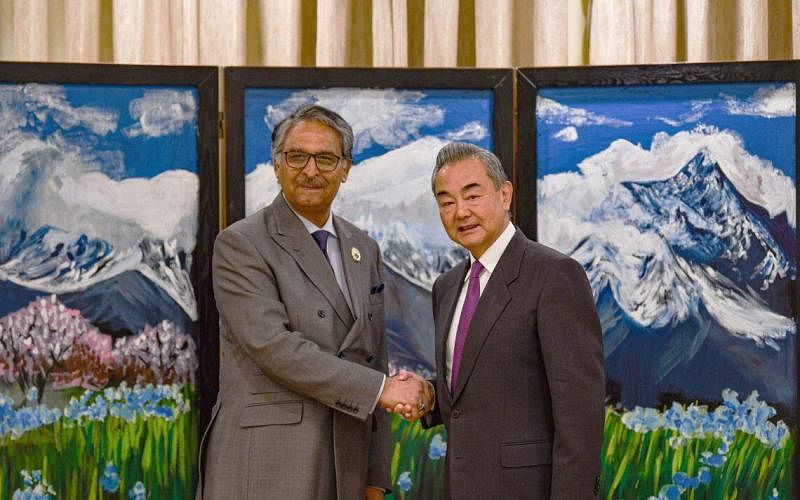Sino-Indian Relations Remain Tense as Wang Yi Urges Dialogue and Economic Cooperation
Tensions between China and India have continued to escalate this year due to ongoing border disputes, but Chinese Foreign Minister Wang Yi is now calling for countries in the Himalayan region to resolve their differences through dialogue and consultation. In a speech delivered at the “Rim of the Himalayas” International Cooperation Forum in Tibet on Thursday, Wang Yi emphasized the need for regional countries to respect each other’s sovereignty and territorial integrity, while also supporting each other on issues of core interest.
This is the first time the China-led forum has been held since the outbreak of the COVID-19 pandemic, and it saw the attendance of senior officials from Mongolia, Nepal, Pakistan, Afghanistan, and other countries. Notably, India was absent for the third time after 2018 and 2019.
The ongoing border disputes between China and India have resulted in numerous conflicts throughout 2020, with both sides mobilizing soldiers, artillery, missiles, and fighter jets. Despite 19 rounds of diplomatic and military negotiations, the disputes persist. India’s hosting of a G20 meeting in Arunachal Pradesh earlier this year, which China did not attend, further strained relations. Additionally, China’s announcement of a new version of its standard map in August, which included disputed areas with India, sparked strong protests from New Delhi.
In an interview with Lianhe Zaobao, Li Mingjiang, an associate professor at the S. S. Rajaratnam School of International Studies, stated that Wang Yi’s speech reflects a genuine desire to improve Sino-Indian relations and encourages India to separate the border disputes from the overall relationship between the two countries. Wang Yi also called for increased connectivity and regional integration, emphasizing the importance of enhancing projects such as railways, highways, aviation, and port customs clearance.
Li Mingjiang further analyzed that India has been cautious, and at times opposed, to China’s economic cooperation initiatives in the Himalayan region, fearing China’s economic strength and infrastructure capabilities will threaten its geopolitical interests and weaken India’s influence on neighboring countries. Wang Yi’s speech was intended to encourage India to adopt a more positive attitude towards economic cooperation in the area.
Shanghai-based international relations scholar Mu Dong expressed concerns about India’s absence from the forum, stating that it decreases the value of China-led initiatives. India’s current policy towards China involves not participating in multilateral activities led by China, as it fears becoming an isolated platform for Beijing. Mu Dong also highlighted India’s concerns about China using the forum to pressure New Delhi and further isolate it.
Since Wang Yi returned to the Ministry of Foreign Affairs in July, he has not communicated with Indian Foreign Minister Subrahmanyam Jaishankar. Mu Dong believes that Sino-Indian relations have reached a stalemate, with both sides unwilling to make concessions, and the confrontation is now based on endurance, patience, and national strength. Mu Dong does not believe that a phone call or meeting between the two foreign ministers is urgently needed, as there are no pressing issues to address.
In response to renewed pressure from the United States on issues such as Xinjiang and Tibet, Wang Yi criticized Western forces without naming them for spreading lies about Tibet based on ideological prejudice. Mu Dong suggested that China’s resumption of the “Rim of the Himalayas” Forum is an attempt to engage in preventive diplomacy and prevent Himalayan countries from being influenced by external forces, particularly during the Cold War.
As Sino-Indian relations remain strained, it is unclear when or if there will be a breakthrough in the current deadlock. Both countries seem unwilling to take the initiative and make concessions, and the resumption of regular communication between their foreign ministers does not appear to be a priority.
